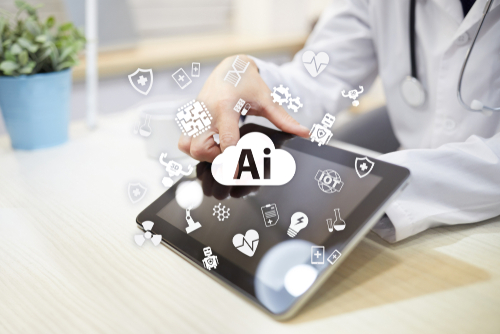



Get new exclusive access to healthcare business reports & breaking news




People are increasingly turning to the internet for healthcare—more than one hundred million research their symptoms online in the U.S. every year. In an industry infamous for its complexity, healthcare startups like K Health seek to simplify primary care by letting users self-diagnose their conditions with the power of AI. K Health’s product is a free mobile application that asks users simple questions about their conditions. The app uses over one billion data points along with machine learning to provide users insights into their conditions. Read more,
Diabetic retinopathy, a condition that can cause blindness for patients with diabetes, can now be diagnosed by AI technology called IDx-DR. UI Health Care-Iowa River Landing is the first hospital to adopt the machine to detect early symptoms of the condition. IDx-DR has already been approved by the FDA for use, providing results and a diagnosis within minutes by analyzing the retinas of patients. Read more.
Stomach cancer is one of the leading causes of death in Japan. It is incredibly difficult to identify, as there are few symptoms in the early stages of the disease. However, in a showcase of the power of AI, the accuracy rates of a new AI program were as high as those of specialist doctors, with the program quickly and accurately judging endoscopic images as stomach cancer or normal stomach tissue. Read more.
Viz.ai has received two FDA clearances this year to continue expanding its software and platform for stroke detection and other time-sensitive conditions. Viz.ai’s momentum has drawn the attention of large venture capital players such as Kleiner Perkins and Google Ventures, Alphabet’s VC arm. The programs that Viz.ai are developing build upon existing CT technology, differentiating from other solutions with its easy integration into existing workflows and systems. Read more.
One of the reasons behind the incredible potential of AI in healthcare is the vast amount of available data. To accelerate that potential, the National Institutes of Health’s Clinical Center, U.S. has created a dataset of Computed Tomography (CT) images publicly available in support of the effort improving lesion detection. Called “DeepLesion,” the dataset already has over 32,000 carefully annotated CT images, empowering researchers and developers to make the next breakthrough in this field. Read more.